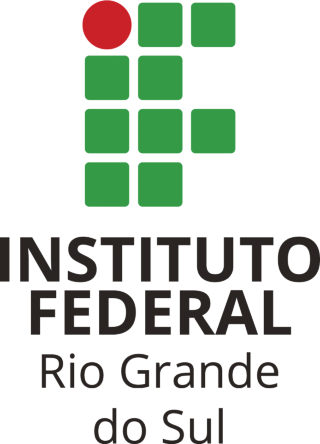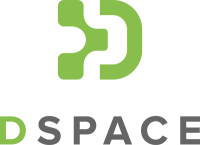Uso da realidade aumentada no ensino de química: uma pesquisa bibliográfica
Show simple item record
| dc.contributor.advisor |
Nichele, Aline Grunewald |
pt_BR |
| dc.contributor.author |
Nascimento, Géssica do |
pt_BR |
| dc.date.accessioned |
2024-08-21T17:34:05Z |
|
| dc.date.available |
2024-08-21T17:34:05Z |
|
| dc.date.issued |
2016 |
|
| dc.identifier.uri |
https://dspace.ifrs.edu.br/xmlui/handle/123456789/1356 |
|
| dc.description.abstract |
Usualmente a Química tem sido trabalhada na escola na perspectiva da pesquisa científica, ou seja, desenvolvida a partir das descobertas científicas. Como consequência, é comum entre os estudantes a concepção de que a Química trata de um emaranhado de conceitos complexos e de difícil compreensão. Entretanto, tendo como princípio que ensinar química é colaborar para que o cidadão saiba fazer uso da ciência em seu benefício, compreendendo suas aplicações e possibilitando o entendimento da importância das descobertas que permeiam essa ciência, bem como percebendo o crescente acesso a informação por meio de tecnologias digitais (TD) como computadores, internet, telefones celulares e tablets e as oportunidades que essas TD trazem para o campo da educação, nessa pesquisa buscou-se compreender como essas TD podem contribuir para se “usar” a ciência ao invés de “fazer” ciência. No que se refere às TD, em especial, a Realidade Aumentada (RA) compôs o objeto de interesse da pesquisa, como uma ferramenta de apoio didático, mediada por tablets e smartphones. Nesse contexto, essa pesquisa teve como objetivo geral conhecer como as TD - em especial por meio da RA - estão sendo adotadas no ensino de química para a compreensão dessa no âmbito do universo microscópico. Os objetivos específicos dessa pesquisa foram: Conhecer os softwares e aplicativos para tablets e smartphones que proporcionam vivências com a realidade aumentada no âmbito da química microscópica; Conhecer estratégias de ensino e de aprendizagem que adotaram softwares e aplicativos para tablets e smartphones que proporcionam vivências com a realidade aumentada no âmbito da química microscópica. No que se refere à metodologia, essa pesquisa, de caráter qualitativo e exploratório, envolveu o desenvolvimento de uma pesquisa bibliográfica. A pesquisa bibliográfica foi efetuada por meio da busca de artigos nacionais e internacionais no Portal da Coordenação
Aperfeiçoamento de Pessoal de Nível Superior (CAPES), nas bases de dados Scopus e Scielo. As palavras-chave utilizadas foram“augmented reality”, “education” e “chemistry”; o período investigado foi de 1997 a 2016. Todos os artigos tiveram seus resumos lidos e aqueles sem relação com a pesquisa foram excluídos. Quando o resumo não ofereceu subsídios suficientes para a avaliação o artigo foi lido na íntegra. Foram selecionados sete artigos para análise documental a partir da leitura dos resumos dos “achados” da pesquisa bibliográfica nas bases de dados citadas acima. Os artigos selecionados foram organizados e categorizados por meio de quadros e a partir de sua análise buscou-se responder as questões desta pesquisa. |
en_US |
| dc.description.abstract |
Usually the chemistry has been crafted in school from the perspective of scientific research, or developed from scientific findings. As a result, it is common among students the conception that chemistry is a matted of complex concepts and difficult to understand. However, based on the principle that teaching chemistry is to collaborate so that citizens know how to make use of science to their advantage, including their applications and enabling the understanding of the importance of the discoveries that permeate this science as well as realizing the increased access to information through digital technologies (DT) such as computers, internet, mobile phones and tablets phones and the opportunities that these DT bring to the field of education, this research sought to understand how these DT can contribute to "use" science rather than "doing" Science. As regards DT, in particular, the Augmented Reality (AR) composed of interest of the object search, as a teaching tool support mediated tablets and smartphones. In this context, this research aimed to know how DT - in particular by AR - are being adopted in the teaching of chemistry to understand this in the microscopic universe. The specific objectives of this research were: - Know the software and applications for tablets and smartphones that provide experiences with augmented reality within the microscopic chemistry; Knowing teaching and learning strategies that have adopted software and applications for tablets and smartphones that provide experiences with the augmented reality with in the microscopic chemistry. As regards the methodology, this research, qualitative and exploratory, involved the development of a literature search. The literature search was conducted through the pursuit of national and international articles on the Portal of Coordination of Higher Education Personnel (CAPES) in Scopus and Scielo databases. The keywords used were “augmented reality", "education "and" chemistry "; the period of interest is 1997 to 2016. All items have had their summaries read and those unrelated to the study were excluded. When the summary did not provide enough information to assess the article was read in its entirety. Seven articles were selected for analysis of documents from the reading of the summaries of the "findings" of literature in the databases mentioned above. The articles were organized and categorized by means of tables and from its analysis sought to answer the questions of this research. |
en_US |
| dc.format.mimetype |
application/pdf |
pt_BR |
| dc.rights |
Open Access |
pt_BR |
| dc.subject |
Educação |
en_US |
| dc.subject |
Didática |
en_US |
| dc.subject |
Química |
en_US |
| dc.subject |
Professores |
en_US |
| dc.subject |
Realidade aumentada |
en_US |
| dc.subject |
Ciências da vida |
en_US |
| dc.title |
Uso da realidade aumentada no ensino de química: uma pesquisa bibliográfica |
en_US |
| dc.degree.grantor |
Instituto Federal de Educação, Ciência e Tecnologia do Rio Grande do Sul |
pt_BR |
| dc.degree.level |
Graduação |
pt_BR |
| dc.degree.local |
Porto Alegre, BR-RS |
pt_BR |
| dc.degree.graduation |
Licenciatura em Ciências da Natureza – Biologia e Química |
pt_BR |
| dc.degree.department |
Campus Porto Alegre |
pt_BR |
Files in this item
This item appears in the following Collection(s)
Show simple item record
Search DSpace
Browse
-
All of DSpace
-
This Collection
My Account



